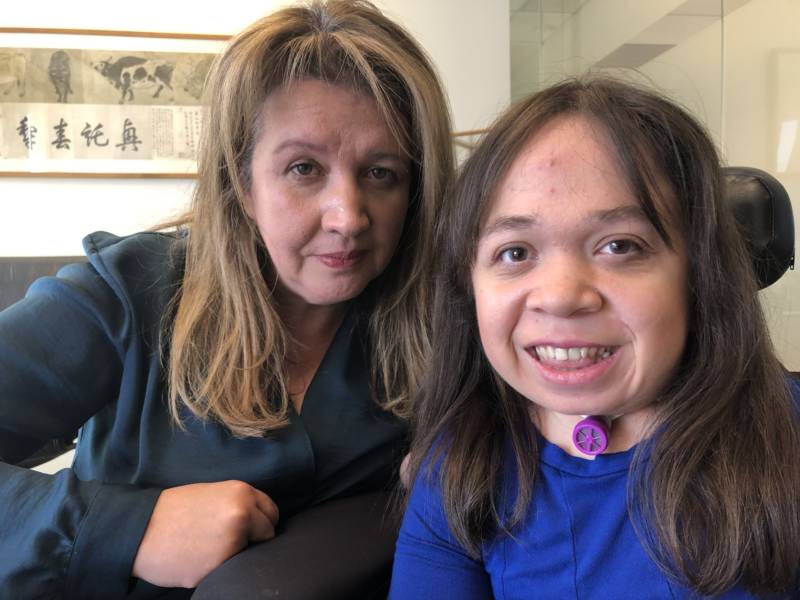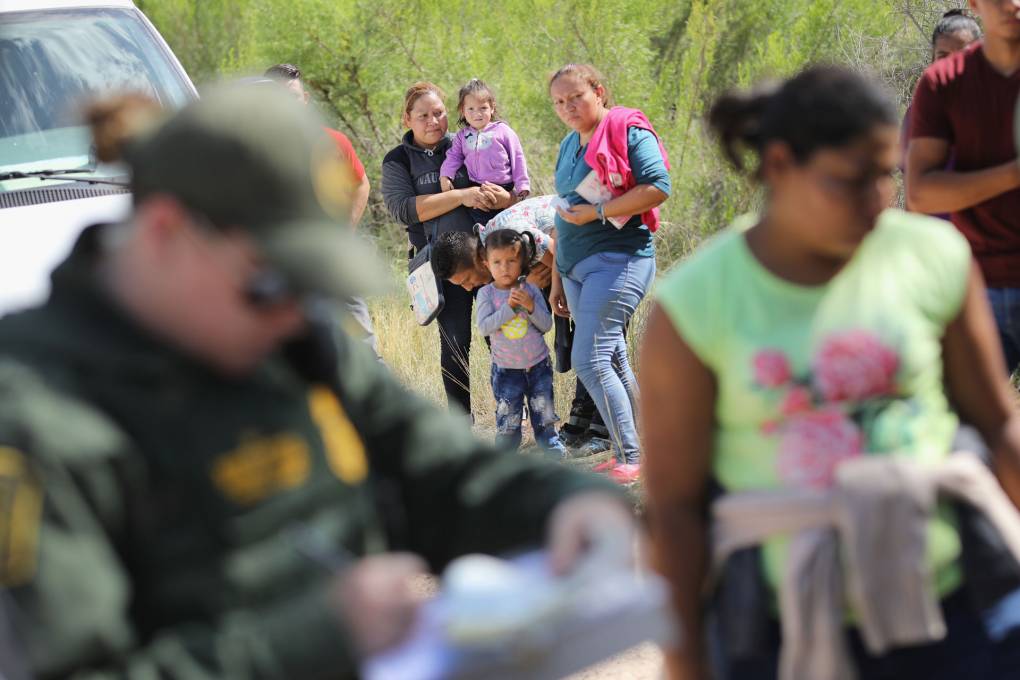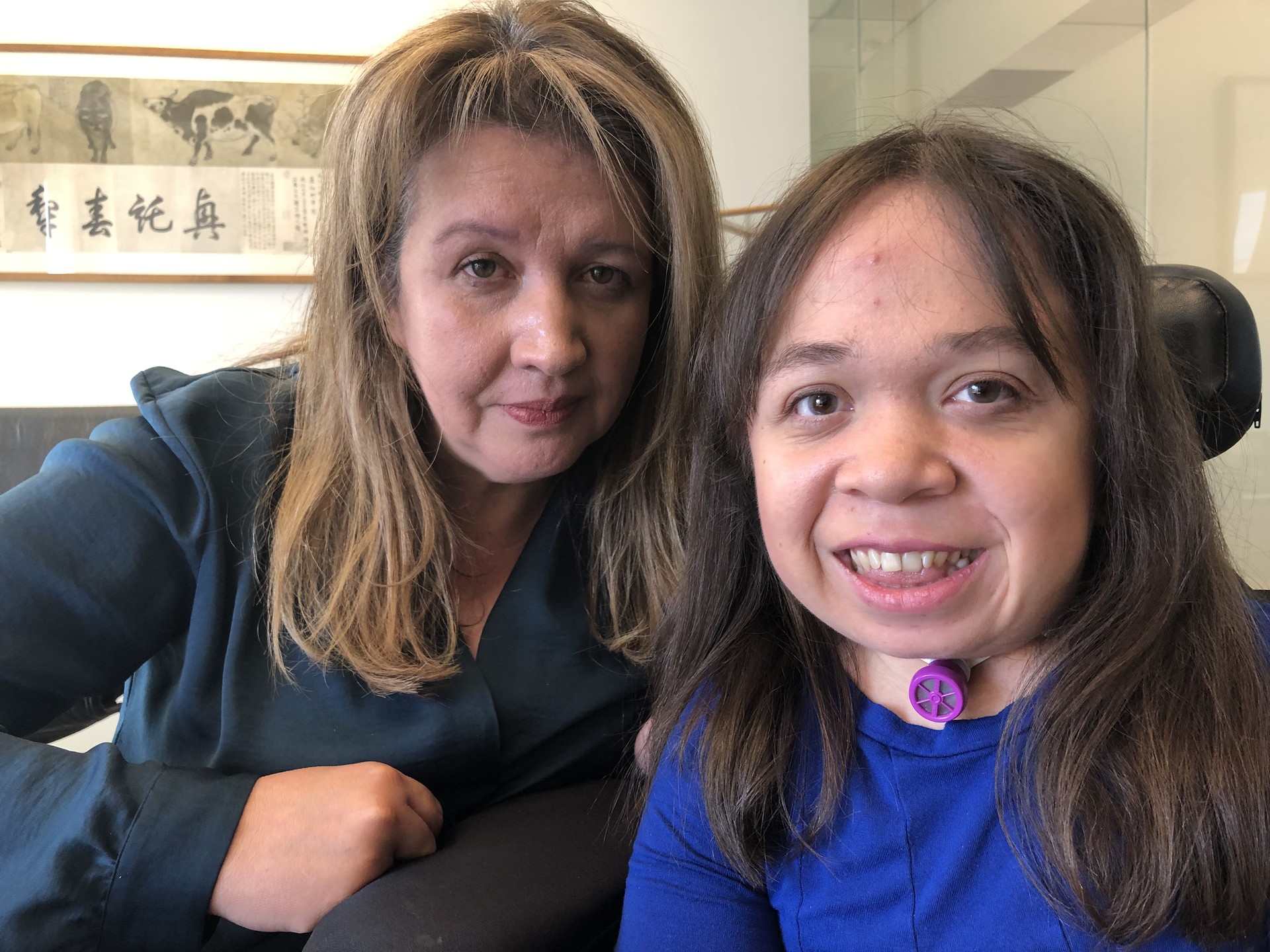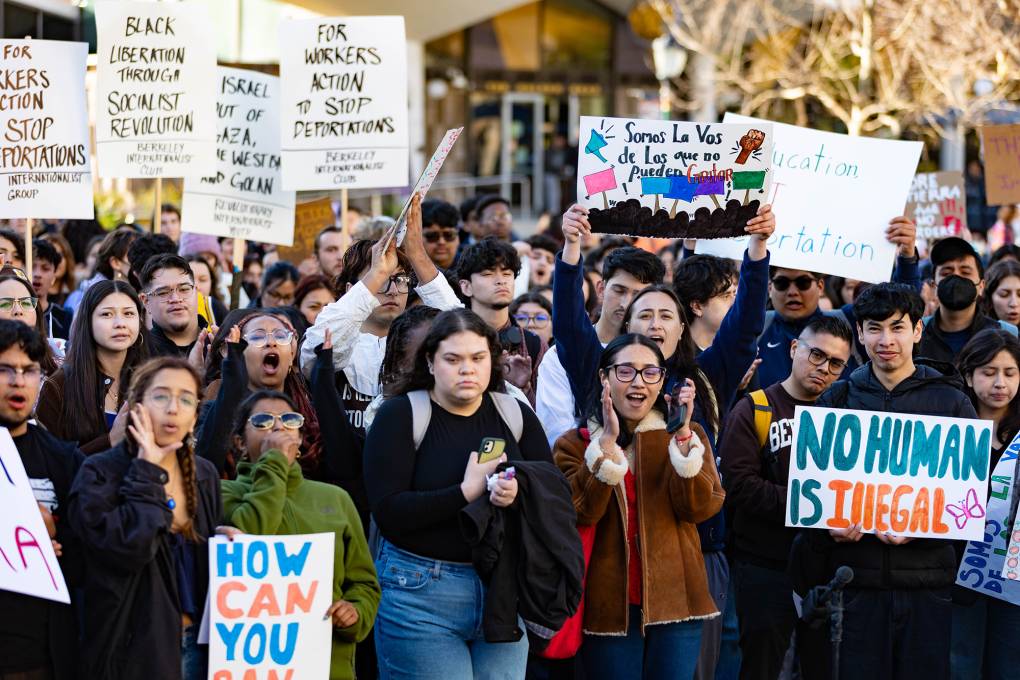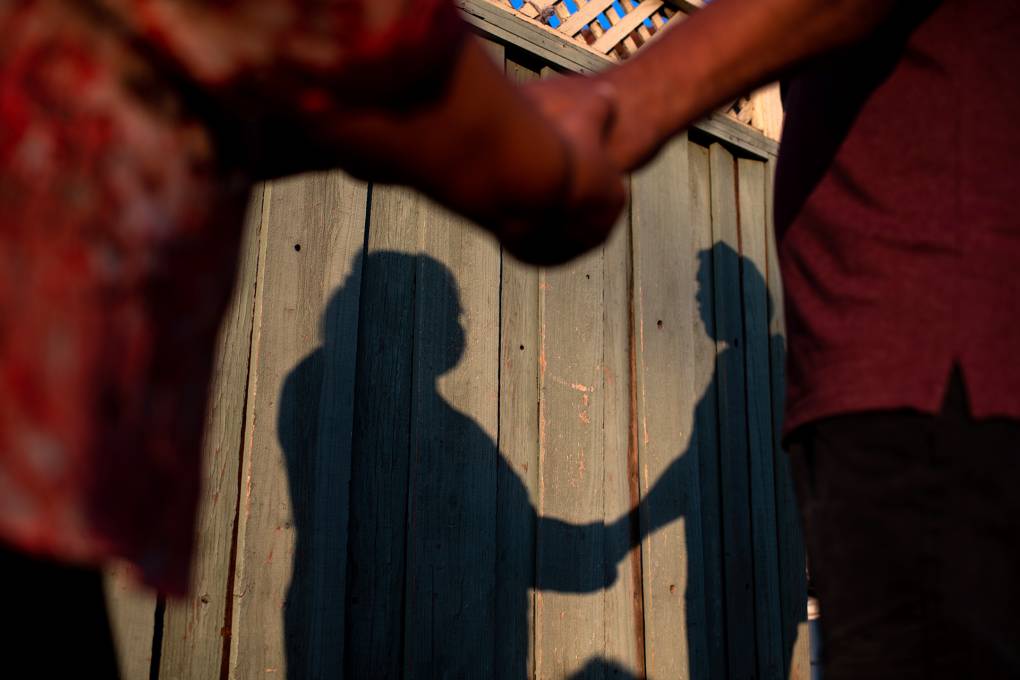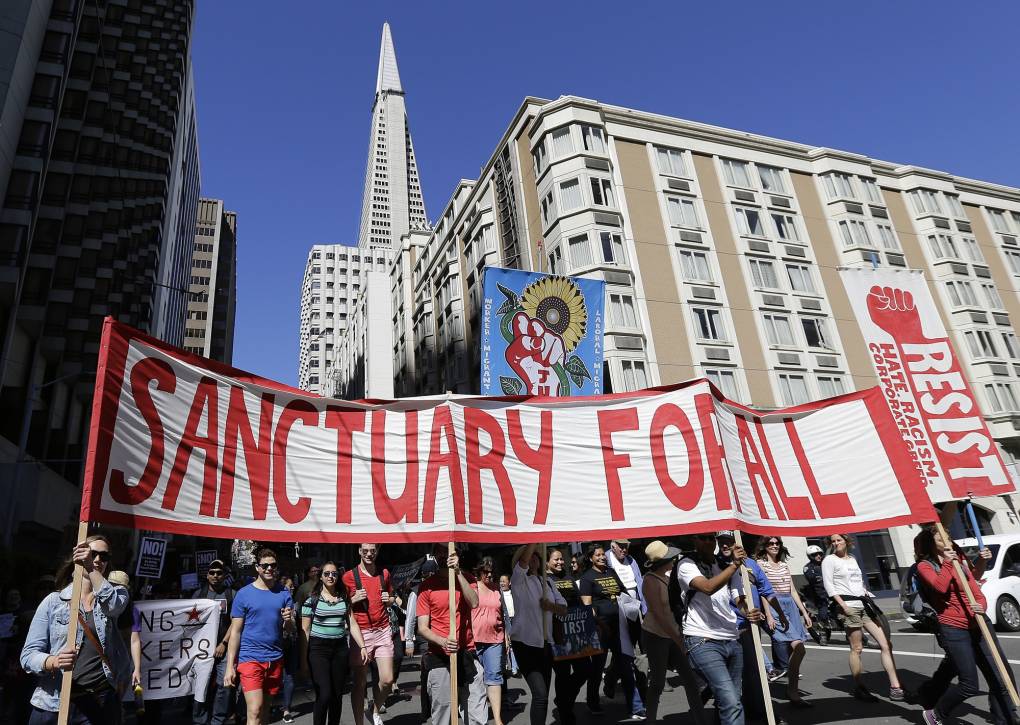Updated Tuesday at 10:35 a.m.
Maria Isabel Bueso has overcome many challenges as a result of the debilitating genetic disease she was born with that eventually left her confined to a wheelchair, breathing through a device and reliant upon weekly treatments to survive.
She trained to become a dance teacher and now is an instructor, and she graduated summa cum laude from California State University, East Bay — where she set up a scholarship fund for students with disabilities. She also advocates for people with her disease and other rare illnesses, traveling to Washington, D.C., to lobby for medical research.
Now, Bueso is fighting for her life once more.
Immigration authorities previously told her and her family to leave the U.S. by mid-September — or face deportation to her home country of Guatemala.
On Monday, USCIS announced the agency will reopen the pending cases of immigrants, often with severe medical conditions who were denied humanitarian relief to stay in the country.
In a statement, the Bueso family called the news of USCIS reconsidering cases, “encouraging.”
“We see this as a first step in revisiting our status as U.S. residents and will be working with out local representatives to find a more permanent solution that guarantees Isabel’s life is never put at risk again,” according to the statement.
USCIS’ announcement comes as KQED and other media outlets reported her case. Members of Congress from the Bay Area also joined roughly 100 colleagues demanding answers about the agency’s decision.
But it is still unclear what will happen to the future of the medical deferred action program, which allowed Bueso and her family to stay in the U.S.
“I feel like I’m advocating for my own life,” Bueso, 24, of Concord, said last week.
‘Pulling the Plug on a Respirator’
Bueso and her family have lived in the U.S. under “deferred action,” a form of temporary humanitarian relief that they renewed every few years.
